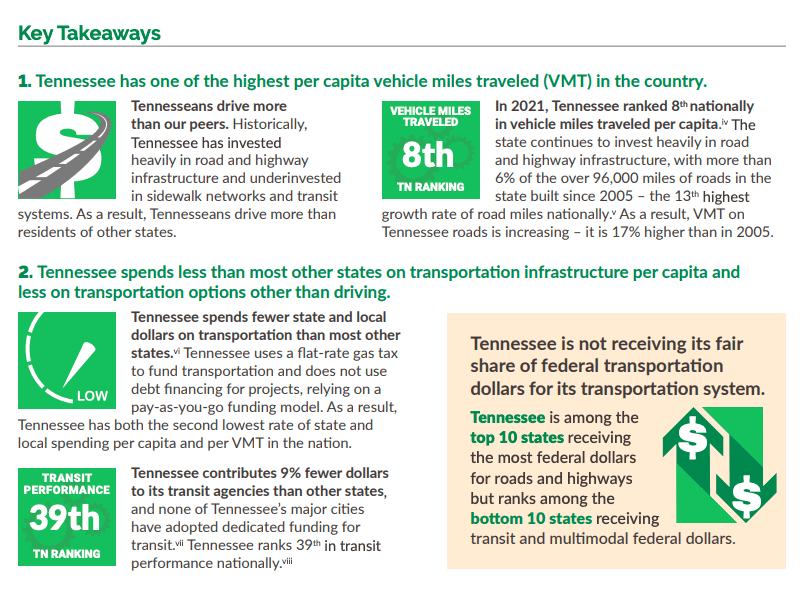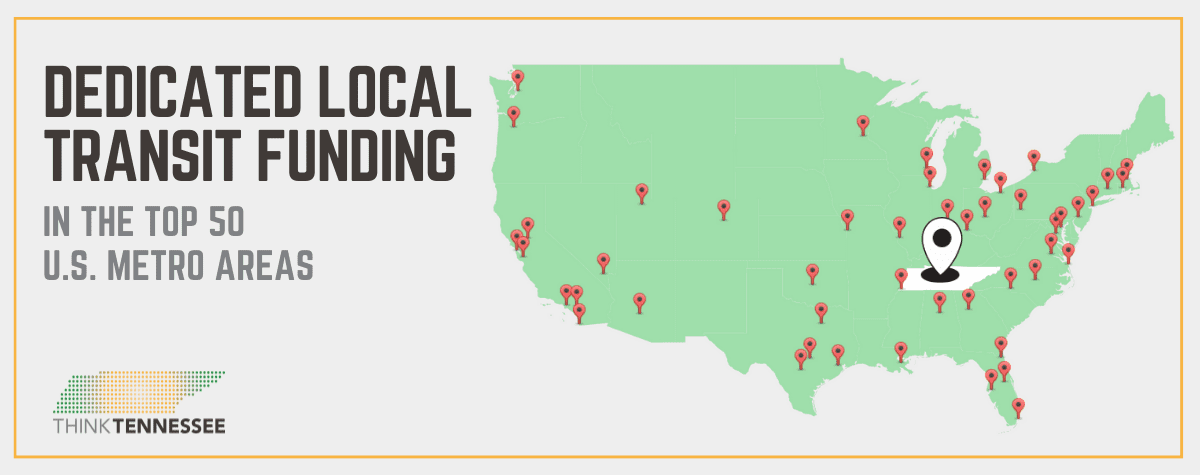MEMPHIS, TN – Memphis is preparing for a surge in job creation and economic investment, and its next mayor can leverage this growth to reduce household costs and increase access to opportunity by investing in transportation and housing, suggests the Building Up Memphis: Equitable Growth through Transportation and Housing roadmap released today by nonpartisan think tank ThinkTennessee.
The number of jobs in the Memphis area has grown to 662,900, a near record high, and it is likely to further increase over the next ten years. In the last two years alone, the Tennessee Department of Economic and Community Development has announced more than $6.7 billion in investments with over 7,600 jobs coming to the region.
“Memphis is poised for incredible economic growth over the next decade, and the next mayor has a tremendous opportunity – and responsibility – to help the city leverage these regional investments to create sustainable, equitable long-term growth,” said Erin Hafkenschiel, president of ThinkTennessee. “By making smart investments in transportation and housing and implementing policies to create safe, walkable neighborhoods and vibrant, mixed-use corridors, the next mayor can connect Memphians to each other and to economic opportunity, leaving a lasting legacy.”
Key Recommendations:
- Create vibrant, walkable neighborhoods with a variety of housing types, safe streets, and more transportation options.
-
- Memphis can increase transportation options by accelerating the design, funding, and construction of Complete Streets, which balance the needs of all road users, especially pedestrians, cyclists, and transit riders.
- The city can also increase the variety of neighborhood housing in the urban core by continuing to support “missing middle” housing development, which allows two- to four-unit buildings in and around higher-density areas and helps to increase housing supply, lower housing costs, and create housing for families of different sizes, incomes, and needs.
- Reimagine corridors to connect people and neighborhoods rather than separate them. Most corridors in American cities have become wide, unsafe highways that divide communities. In Memphis, only 25% of jobs are in the central core, and corridors such as Lamar Avenue and Poplar Avenue provide vital access between neighborhoods, but today these corridors often separate neighborhoods more than they connect them.
- To strengthen Memphis’ corridors, the next mayor should consider embracing mixed-use development, implementing frequent bus networks, and retrofitting street designs to ensure safety, crime prevention, and beautification.
- Review what is working well and what needs improvement across city departments. The next mayor should dedicate time and attention to reviewing what is working and what needs to be improved to ensure that the city’s processes and structure are as efficient and effective as possible.
- The new mayoral administration should review zoning, land use, and existing plans, restructure city departments, appoint a director of safe streets, and develop a housing and transit alliance to support organized reform.
- Dedicate more funding for multimodal transportation and affordable housing. While municipal budgets are constrained everywhere, Memphis currently spends less than peer cities on its transit service, and an estimated 33% of its sidewalks are considered in need of immediate repair.
- Memphis needs more general fund revenue for sidewalks, bike lanes, and vision zero projects, and to create a dedicated source of funding sufficient to improve transit.
- Similarly, dedicated funding for housing programs could accelerate preservation and production of affordable units, expand homeownership opportunities, and help keep low-income and elderly families in their communities.





